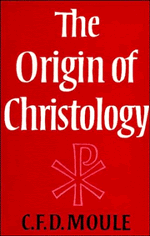Book contents
- Frontmatter
- Contents
- Acknowledgements
- Abbreviations
- Introduction
- 1 Four well-known descriptions of Jesus
- 2 The corporate Christ
- 3 Conceptions of Christ in writers other than Paul
- 4 The scope of the death of Christ
- 5 The fulfilment theme in the New Testament
- 6 Retrospect
- 7 Prospect: the ‘ultimacy’ of Christ
- Excursus: Obeisance (proskunein)
- Index of references
- Index of names
7 - Prospect: the ‘ultimacy’ of Christ
Published online by Cambridge University Press: 01 June 2011
- Frontmatter
- Contents
- Acknowledgements
- Abbreviations
- Introduction
- 1 Four well-known descriptions of Jesus
- 2 The corporate Christ
- 3 Conceptions of Christ in writers other than Paul
- 4 The scope of the death of Christ
- 5 The fulfilment theme in the New Testament
- 6 Retrospect
- 7 Prospect: the ‘ultimacy’ of Christ
- Excursus: Obeisance (proskunein)
- Index of references
- Index of names
Summary
The New Testament specialist cannot be content to stay within his own field for ever. Sooner or later, he is bound to ask himself what his findings mean for Christian doctrine in its larger setting, in religion today, in human society, and, indeed, in relation to the whole universe. Accordingly I find myself asking questions which I am aware of being incompetent even to formulate correctly, let alone to answer. But I ask them unashamedly, because every Christian, whether expert or not, has to ask them; and I include them in this study as a bridge to that which lies beyond it. What bearing do the findings of a limited inquiry into New Testament Christology have upon what is often called the ‘finality’ of Christ? ‘Finality’ is a question-begging word: ‘ultimacy’ is possibly a less unsatisfactory one – though it is questionable whether finis really means anything essentially different from ultimum. But, in any case, the question is whether God's continuing revelation of himself in man's constantly widening experiences may still be meaningfully described as ‘in Christ’. Can it be reasonably maintained (on the analogy of the position that has been maintained for the New Testament period in this book) that, in progressively learning more about man and his psychology, about his personality and his mutual relations, about society and the corporate character of human life, and about the universe, we are only finding a ‘developing’ insight into what, all along, has been given in Christ?
- Type
- Chapter
- Information
- The Origin of Christology , pp. 142 - 174Publisher: Cambridge University PressPrint publication year: 1977



